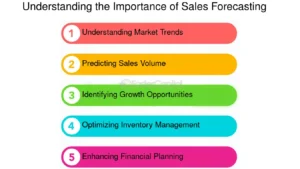Mastering Sales Tools: Elevate Your Sales Process for Maximum Results
Unlock your business’s full sales potential by leveraging tools that enhance customer relationships, improve forecasting, and maximize lead conversion.
Introduction: Why Sales Tools Are Critical for Business Success
In today’s competitive business environment, a well-organized sales process is vital for success. Whether you’re managing leads, tracking customer interactions, or analyzing sales performance, the right sales tools can make a world of difference. Sales tools streamline operations, increase team efficiency, and ultimately improve your bottom line.
This article introduces the Sales category and its three key subcategories: CRM Tools, Sales Pipelines, and Sales Analytics. By incorporating these tools into your sales strategy, you can enhance your team’s productivity, close deals faster, and make data-driven decisions to ensure long-term growth.
1. CRM Tools: Build Strong Customer Relationships
Customer Relationship Management (CRM) tools are the backbone of any sales process. They help businesses track interactions with potential and existing customers, manage lead data, and automate follow-ups. A strong CRM system ensures no lead falls through the cracks, allowing your team to focus on what matters most: closing deals.
Key Features of CRM Tools:
- Centralized Customer Data: Keep all customer information in one place, easily accessible to your entire team.
- Lead Nurturing: Automate personalized follow-up emails, ensuring timely engagement with leads at every stage of the funnel.
- Task Automation: Automate repetitive tasks like sending emails or scheduling meetings, freeing up time for your sales team to focus on selling.
Pro Tip: Tools like Salesforce and HubSpot CRM are perfect for businesses of all sizes, offering everything from lead tracking to advanced reporting features.
2. Sales Pipelines: Streamline Your Deal Process
Managing sales pipelines effectively is crucial for moving leads through the sales process. Sales pipeline tools give you a clear view of where each lead is in your funnel, helping you prioritize high-value prospects and forecast potential revenue.
Why Sales Pipeline Tools Are Essential:
- Visual Deal Tracking: Sales pipeline tools offer visual representations of where leads are in the sales cycle, making it easy to track progress and spot potential bottlenecks.
- Customizable Stages: Tailor pipeline stages to fit your specific sales process, whether it’s a simple two-step funnel or a more complex multi-stage approach.
- Forecasting: Use real-time data to forecast future sales and make informed decisions about resource allocation and strategy adjustments.
Pro Tip: Tools like Pipedrive and Monday.com Sales CRM offer intuitive sales pipeline management, making it easy to customize and track deals from start to finish.
3. Sales Analytics: Make Data-Driven Decisions
Without data, it’s impossible to know how your sales process is truly performing. Sales analytics tools allow you to measure key metrics, track performance, and identify areas for improvement. By analyzing your sales data, you can make smarter decisions, increase efficiency, and optimize your overall sales strategy.
How Sales Analytics Tools Improve Your Process:
- Real-Time Reporting: Track sales performance metrics in real-time, allowing for quick adjustments to strategies and tactics.
- Performance Metrics: Measure important KPIs like conversion rates, average deal size, and sales cycle length to understand your team’s effectiveness.
- Revenue Tracking: Analyze revenue trends and identify which products or services are driving the most sales, enabling more focused marketing and sales efforts.
Pro Tip: Tools like Zoho Analytics and InsightSquared provide comprehensive sales analytics solutions, offering customizable reports and dashboards that give you full visibility into your sales process.
Conclusion: Supercharge Your Sales with the Right Tools
To drive sustainable growth, businesses need to leverage the power of modern CRM Tools, Sales Pipelines, and Sales Analytics solutions. By incorporating these tools into your sales process, you can manage customer relationships more effectively, close deals faster, and make data-driven decisions that improve overall performance.
Ready to boost your sales success? Start exploring these tools today and optimize your strategy for long-term results.
FAQs
What is the best CRM for small businesses?
Popular CRMs for small businesses include HubSpot CRM, Zoho CRM, and Pipedrive. These tools offer affordable pricing with essential features like lead management and email automation.
How can sales pipeline tools improve my sales process?
Sales pipeline tools provide a clear visual of where leads are in the sales funnel, making it easier to prioritize high-value leads, forecast revenue, and streamline the sales process.
What are sales analytics tools used for?
Sales analytics tools are used to track and analyze performance metrics such as conversion rates, deal sizes, and revenue trends. They provide insights that help businesses improve their sales strategy.
Can CRM tools integrate with other software?
Yes, most CRM tools integrate with other platforms like email marketing services, project management software, and sales analytics tools, ensuring a seamless flow of data between systems.
How do I choose the right sales tools for my business?
Consider your business size, sales process complexity, and budget. Look for tools that offer scalability, integrations with your existing platforms, and customizable features that align with your sales goals.
Keywords: CRM Tools, Sales Pipelines, Sales Analytics, lead tracking, customer relationship management, sales forecasting, performance metrics, deal management.










